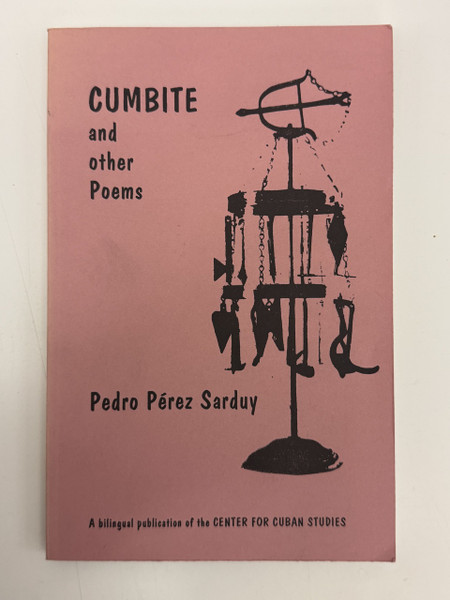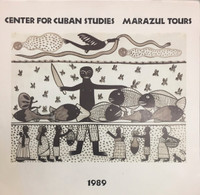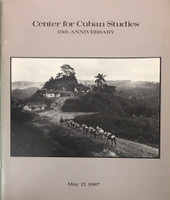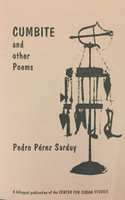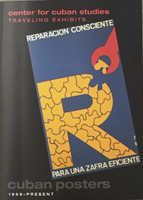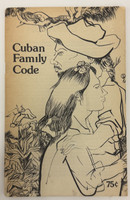- Travel
-
Exhibits
- Covers
- Immortal Cuba: Artists Take on Their Heroes
- Seattle Poster Exhibit
- Sandra Dooley & Alejandrina Cué
- The Art of Wayacón
- Cuban Folk Art
- Cuba In Black And White
- 25 Years of Cuban Art Space
- Summer Folk Art Expo
- ¡SPRING AWAKENING FROM CUBA!
- Celebrating The Art Of Cuban Women
- Celebrating Paper, Affordable Art from Cuba
- Art of the Revolution
- Outsider Art
- Lost and Found
- En la lucha: Celebrating Cuban Women and Their Art
- Cuban Art Stash
- 100 Fires: 5 Cienfuegos Artists' Work on Paper
- Waya + Monte! Magic Realism in Cienfuegos
- Viva Cuba Viva! Poster Show
- Cultivando Sueños
- Black Lives Matter in Cuba Jan 9-March 27
- Leandro Soto: Crónicas visuales
- Cuban Canvas
-
Archive
- Global Reflection 2018: Spirit and Community
- Exhibit in the cloud: Contemporary Works on Paper
- MADE IN CUBA! MINNEAPOLIS EXHIBIT
- Cuban Posters and Photography from CCS collection
- AUTUMN SALE! Sept/Oct 2017
- SPRING ARTS AND CRAFT SALE
- Vuelo Directo/Non Stop: Alberto & Alejandro Lescay
- The Many Faces of Fidel
- Somos
- Made in Cuba!
- The US empire in Cuban graphics
- Made in Cuba/Seattle exhibit
- Entre Nos
- Looking Back
- Cuban Art Space
- Membership/Donate
- About Us
- Cuba News
-
The cover design for "Cumbite and Other Poems" employs a striking visual metaphor rooted in Afro-Caribbean cultural practice. Against a warm salmon-pink background, a bold black silhouette depicts a cumbite—a traditional Haitian structure used in communal rotating labor practices where workers stand on platforms suspended by chains, working collectively. The illustration shows small human figures positioned on and around this apparatus, their bodies interconnected through the mechanisms of shared labor. The hand-drawn quality of the image and the stark contrast between the black illustration and pink ground create a powerful visual statement about collective work, cultural memory, and diaspora connections. The minimalist typography allows the central image to dominate, transforming an instrument of communal labor into a symbol of cultural solidarity and Afro-Caribbean identity.
Pedro Pérez Sarduy (born Santa Clara, Cuba, 1943) is an Afro-Cuban writer, journalist, and scholar whose work explores the intersections of Cuban, Caribbean, Latin American, and Afro-American cultures. Growing up poor and Black in a small hostile town, he pursued education through high school and into the revolutionary period. He studied classics at the Central University of Las Villas in the early 1960s before transferring to Havana to study English, American, and French literature and language. His first major poetry collection was "Surrealidad" (Havana, 1967), followed by "Cumbite" (Havana, 1987). He also published "Journal in Babylon" about Britain's Black community and the short story "The Ibelles and the Lost Paths." His forthcoming novel "The Maids" draws on his mother's experiences in pre-revolutionary Havana.
Published in 1990 by the Center for Cuban Studies as part of its Lourdes Casal Library bilingual publication series, this collection appeared during a crucial moment in Cuban diaspora literary production. The Center—founded in New York in the 1970s—served as a vital bridge between Cuban and U.S. cultural communities, particularly during the 1989-90 academic year when Pérez Sarduy served as Writer-in-Residence. The title "Cumbite" references not only the Haitian communal work tradition but also represents the broader Afro-Caribbean syncretism that shapes both Cuban culture and the poet's vision. As Sterling Plumpp notes in his back cover endorsement, Pérez Sarduy is "a deeply personal and highly original voice" whose poetry wrestles with suffering, sorrow, and the meaning of revolution, inventing language "in a singing" that reflects what kind of society could produce "such a sensitive man, such a universal and literate man, such a marvelous poet."
-

